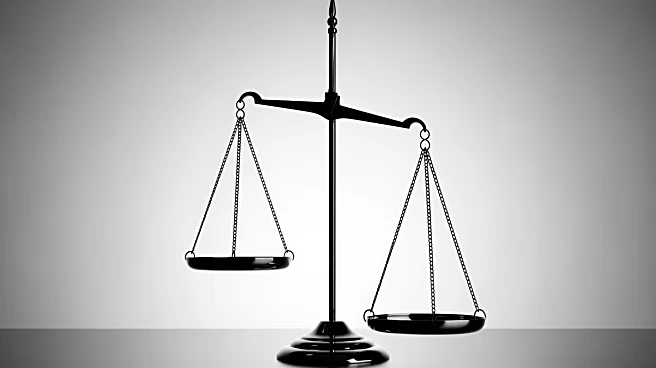What's Happening?
John Sauer, the U.S. Solicitor General and former personal attorney for President Trump, faced skepticism from Supreme Court justices during arguments regarding the president's tariff powers under a 1977
emergency law. Conservative Justices Neil Gorsuch and Amy Coney Barrett questioned whether the law's language conferred tariff authority to the executive. Chief Justice John Roberts challenged Sauer's reliance on a Reagan-era case, Dames & Moore v. Reagan, which Sauer claimed supported broad presidential powers. The case, Trump v. V.O.S. Selections, Inc., involves the use of the International Emergency Economic Powers Act to impose tariffs, which Sauer argued were regulatory rather than revenue-based.
Why It's Important?
The case has significant implications for presidential authority and the separation of powers. If the Supreme Court upholds the tariffs, it could set a precedent for expanded executive power in trade matters, potentially bypassing congressional oversight. This could lead to one of the largest tax increases in U.S. history, affecting businesses and consumers. The skepticism from conservative justices suggests a potential shift in judicial interpretation of executive powers, which could impact future administrations' ability to unilaterally impose tariffs and other trade measures.
What's Next?
The Supreme Court is expected to rule quickly on the case, with a decision anticipated in early 2026. The outcome will determine the extent of presidential power under the International Emergency Economic Powers Act and could influence future trade policy. Stakeholders, including businesses and trade associations, are closely monitoring the case, as it could affect import costs and international trade relations. The ruling may also prompt legislative action to clarify or limit executive authority in trade matters.
Beyond the Headlines
The case highlights the ongoing debate over the balance of power between the executive and legislative branches. It raises questions about the use of emergency powers for economic regulation and the potential for executive overreach. The decision could have long-term implications for the U.S. legal framework governing trade and tariffs, influencing how future administrations navigate international economic challenges.












